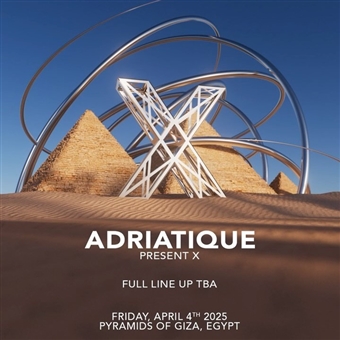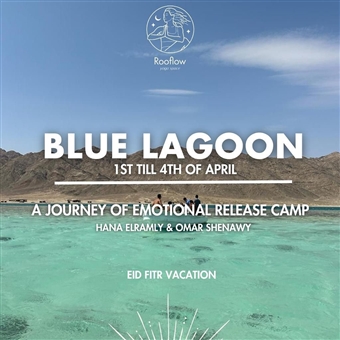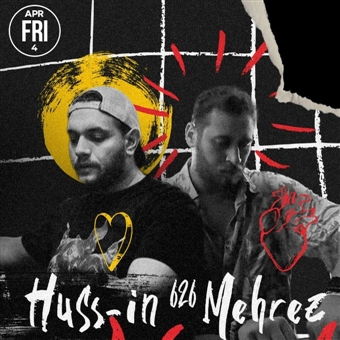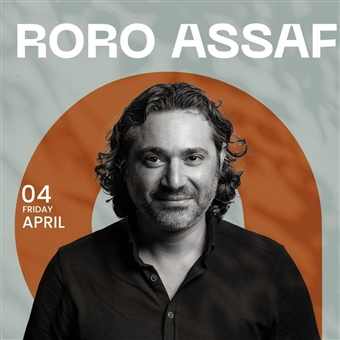Stella, Identity & the Modern State: A Recent History of Egyptian Beer
Special guest contributor Dr. Omar Foda, beer historian and best-selling author, shares the evocative history of Egypt’s most iconic beer brand.

“Don’t tell your mother,” my father said to me as I drank the crystal cup filled with foamy beer. The empty green bottle sat with two others on a silver tray in front of me and my dad. We sat on a stiff, plush couch in my aunt’s apartment. It was my first beer. I didn’t drink at all in high school; a combination of religion, worry, and social awkwardness.
My mom would eventually find out, just as she found out about everything. But even she could recognize that it was fated. It was a Stella beer. Between 1963 and 1983, my grandfather, Dr. Ismail Omar Foda, was the main executive of the beer company, Al-Ahram, that produced Stella beer. Our house and his were loaded with paraphernalia. I remember the checkered green tablecloth which lasted at least three decades, and the metal ashtray that fewer and fewer people used - my father was a reformed smoker, pulmonologist, and anti-smoking evangelist - but never degraded.
My aunt commented on how much I liked the beer, saying, “It’s in the blood.”
By the laws of the United States and Egypt, the drinking age is 21. It is odd that a Muslim-majority country like Egypt would have a drinking age. Many surrounding countries have a blanket ban on alcohol and no need for a drinking age, but Egypt is something different. Its colonization by the British had a role to play. They did not intend on letting the religious laws of the land stand in the way of their good time. They scoffed at the idea of Islam frowning on drinking. In response, an anti-colonial temperance movement grew out of the activism of native Muslims and Christians who worked together to fight the evil of drink. But these battle lines, drunk colonialist versus the temperate native, were not strictly drawn. There were local Muslims and Christians who drank and made money off of alcohol, as there were colonialists who sought to prevent the noble savages from drowning themselves in booze.
Around this time, Belgian entrepreneurs founded Crown Brewery in 1897 in Alexandria, and Pyramid Brewery in Cairo in 1898. Their business model was built around providing European style beers at local prices. They did this by using foreign brewing techniques in Egypt-based factories staffed by a mostly local workforce.
It’s important to note that the Belgians weren’t creating a native brewing tradition from scratch. In one form or another, there had always been local brewing in Egypt since the Dynastic period. When the two breweries were founded, buza - a slightly fermented drink made from local wheat or barley - was still popular. But buza was, and still is, heavily associated with the rural and the poor; not something a self-proclaimed modern Egyptian would drink. And that was the main challenge facing these two breweries, between their founding and their nationalization in 1963: convincing the population that their beer should be the drink of choice for the modern Egyptian.
They were aided in this cause by two factors. First, the rising nationalism in the country after Egypt’s declaration of independence in 1919. After that time, when journalists and politicians encouraged people to buy local, it became a distinct advantage to produce beer in Egypt.
Second, Dutch multinational brewery Heineken invested heavily in both breweries in the late 1930s. Before the arrival of the Dutch, Pyramid and Crown changed hands a few times and had slowly gained a significant market share. They even worked together to craft a European lager, a joint project that came to be known as Stella.
However, Heineken brought the entire undertaking to the next level, using its cutting-edge technology and the resources of its multinational empire to make Pyramid and Crown, and particularly Stella, a world-class beer. This included adapting the latest practices in marketing, distribution, and beer-making to Egypt. They even bred a variety of barley perfectly tailored for the country’s environment. The venture was such a boon for Heineken that they planned on using Cairo as their base for a new African beer empire.
This hope would not be realized, as they - and many other companies in the Egyptian private sector - would be incorporated into the public socialist economy of President Gamal Abdel Nasser. Although nationalization happened within a year in 1963, it was the culmination of a decade-long process wherein the Egyptian government took control of its economy.
“Nasser ruined everything”
-My aunt
My family’s dislike of Nasser made sense. The Nasser government took a sizable portion of their land with their agricultural reform package, a move everyone believes killed my great grandfather, who died very quickly afterwards, and exacted a draining punishment on my great uncle. They froze all his assets, prevented him from working, and placed him under indefinite house arrest. While they didn’t kill him, they hollowed out a big, boisterous, and jovial man into something frail and broken.
My family background couldn’t help but influence the way I looked at the nationalization of Pyramid and Crown. I felt vindicated when, during my research on my book, Egypt’s Beer, I found that nationalization was bad for Heineken and the Christians and Jews who worked there. This was especially true for those who could not prove, by producing the right documents, that they were Egyptian enough for the government. They lost their shares, their jobs, and many times, even their place in the country.
But for the beer company itself, nationalization in 1963 marked the beginning of a banner period. The newly created Al-Ahram Beer Company - an amalgamation of Crown and Pyramid - gained total control of the market, a control it would maintain well into the 1990s.
Culturally, Stella became synonymous with beer in the country at the exact time that beer became an unquestioned feature of Egyptian culture. One need only to look at any form of Nasser era media, with its strong secularism, to see that. Not to mention that due to Nasser’s economic reforms, Egyptians overall had more money and more free time than they ever had before.
“Before Mansoura went dry, I used to sit with friends at sunset and drink a beer at a table overlooking the Nile. My friend Hagg Muhammad loved beer, but gave it up when his sheikh, despite the series of pleading questions he asked, said it was haram.”
-My dad
For my father, a certain set of Egyptians (at home or abroad), and foreigners who lived in Egypt, Stella serves as an easy encapsulation of an imagined Egypt. In this world of nostalgia, Egypt - and Alexandria in particular - was a cosmopolitan, almost European, place where all manner of peoples and religions mixed. One could not tell if someone was a Muslim or Christian or Jew in this new La Convivencia. And this nostalgia grew stronger as Islam came to claim more and more of the Egyptian public sphere.
This process had its origins in the late Nasser period but flourished under President Anwar Sadat, who positioned himself as a religious leader to counteract his strong leftist opponents. He encouraged public displays of faith, passed legislation to remove irreligious things, like beer, from the public sphere, and granted religio-political movements like the Muslim Brotherhood, which had been squashed under Nasser, new life. In many ways, Egypt is still caught between the nostalgists and Islamists.
“I really love craft beer, it’s a shame the only thing they sell here is this Stella garbage.”
“My grandfather ran that company”
“Oh, sorry.”
-Conversation between me and a study abroad student
I was used to it, because I had never known a Stella that was not the butt of the jokes of Egyptian and expat beer drinkers alike. If someone knew about Egypt’s Stella, they would be quick to tell me how bad it was. Some of it was the result of the Egyptian tendency for self-deprecation. But some of it was the result of a decline in quality. By the 1980s, the socialist policies that aimed at greater rights, protections, and benefits for Egyptian workers had started to weigh heavily on Al-Ahram.
Likewise, Anwar Sadat’s combination of unregulated privatization, refusal to undo any of Nasser’s socialist policies, and encouragement of public displays of religion, had left the company struggling to compete with foreign brands while also forcing it to defend its very presence in the country. It was a war on two fronts, and the company was simply not up to this momentous task. The generation of Egyptians who had trained with the Dutch or were experienced brewers, like my grandfather, were replaced in the late 80s and 90s by people who were happy to take the almost assured profit without any eye to the future.
While it did not compare to what was yet to come under the Luxor group, an Egyptian-American venture headed by Ahmed Zayat that privatized Al-Ahram in 1996, the Al-Ahram Beer Company was no doubt in decline, as evidenced by shrinking sales in the 1980s onwards. The company quickly fell into a death spiral. Every poorly capped bottle, flat beer, or particulate at the bottom of a glass was further evidence of the mantra seen on unofficial Stella shirts in the Khan el-Khalili's stalls: “What does not kill us, makes us stronger.”
“Well, I guess, it’s the family business.”
-My aunt
My family connection is why I started studying Egyptian beer and continue to write on it. I, however, don’t continue to drink it, or any other alcoholic beverage. For a variety of reasons, I’ve given it up. Yet, I can’t give up beer. I drink non-alcoholic beer quite frequently. I tell myself I do it because I enjoy the taste, but surely there is some part of me that does not want to abandon what I inherited from my father and grandfather.
It was under my grandfather that Al-Ahram started experimenting with non-alcoholic beer, enlisting the help of the Swiss brewery, Hürlimann, in the 1980s to make their most famous non-alcoholic brand, Birrell. When Luxor took over, they pivoted hard towards non-alcoholic beers believing, rightly, that the future for the company would be in the religiously-acceptable beverage. In 1999, non-alcoholic beer made up nearly half of their production. They also introduced new brands, Stella Premium and Meister, hoping to move away from the diminished reputation of Stella.
These moves were predicated on using the latest in brewing technology, overseen by brewers trained at Carlsberg, in a new brewery in Obour industrial village. Obour would quickly become their main point of operations. This move was tied to the abandonment of the centuries-old brewing complexes in Giza and Ibrahmiyya, which sat on precious downtown property.
Luxor, as part of their privatization agreement with the Egyptian government, had agreed to relinquish any control Al-Ahram had to the breweries and their land. It all paid off, especially for Zayat. Heineken reentered the market and bought out Luxor in 2002. Zayat made enough money off the sale to become a very successful horse stable owner. One of his horses, American Pharaoh, won the Triple Crown in 2015.
“Be a man (Istirgill)”
-Birrell advertisement
Al-Ahram brewery remains under Heineken control and seems to have weathered the storm. Yet, something has been lost. The premise of their “Be a Man” campaign was that non-alcoholic beer tastes bad - the drinker in the commercial would pucker their face in disgust after drinking Birell - but men drink things, even foul-tasting things, because they are men. Outside of being heavily gendered, the campaign also trades on the admission that the product is not very good. Hardly a proud representation of Al-Ahram’s two hundred years of beer-making.
I can’t say I believe that drinking beer, alcoholic or non-alcoholic, makes me a man. Or that drinking Stella will revive some long forgotten or imagined Egypt. Yet, I hold deeply on to the identity as a beer-drinker and a Stella lover because to do otherwise would be to abandon my own family history.
Trending This Week
-
Mar 29, 2025































